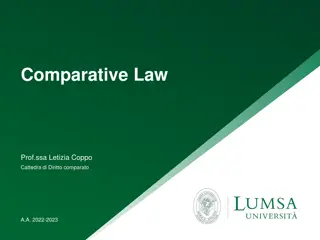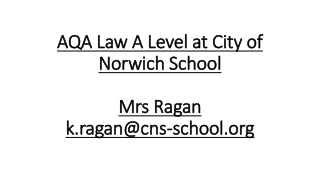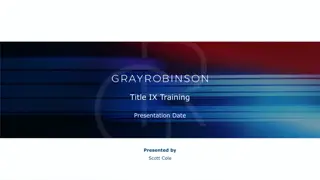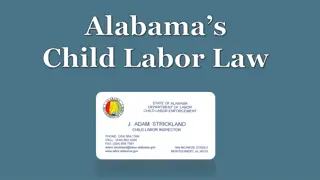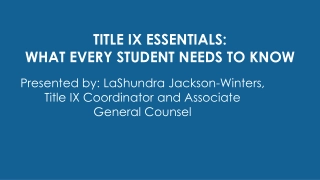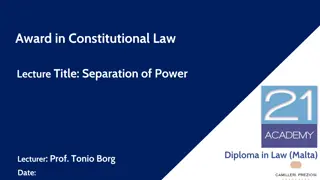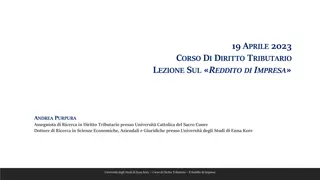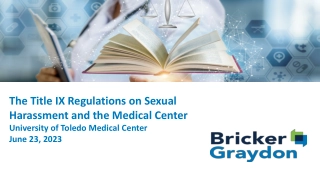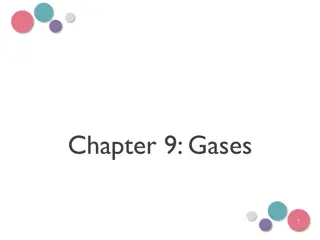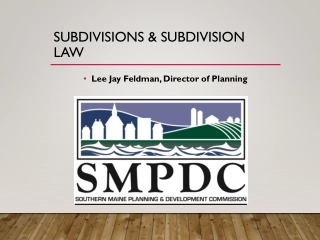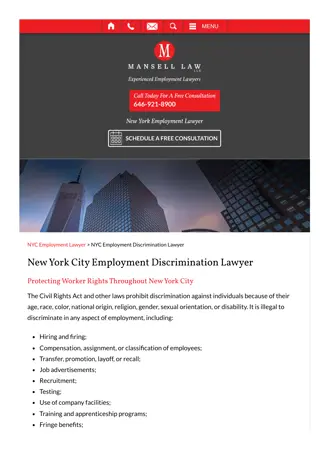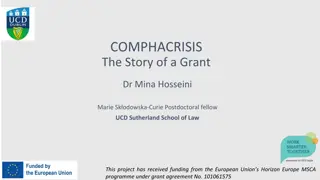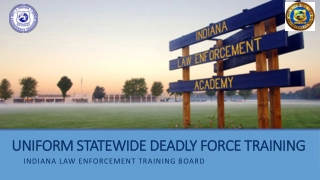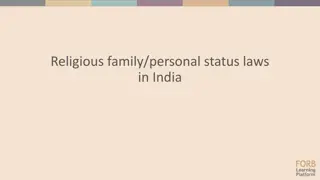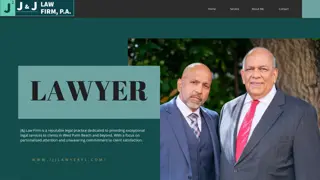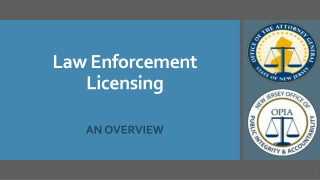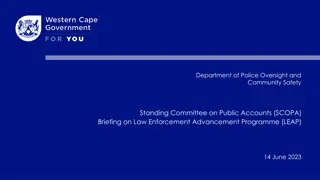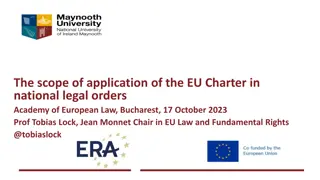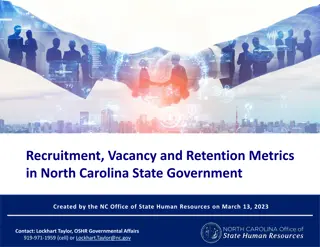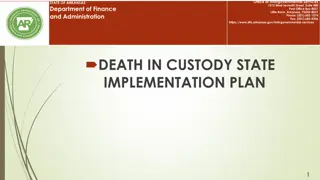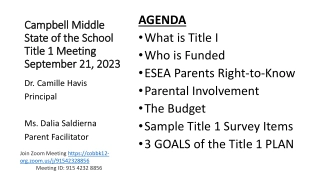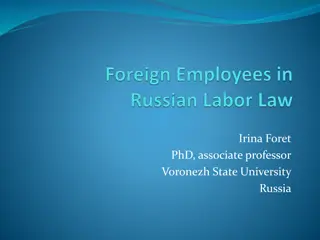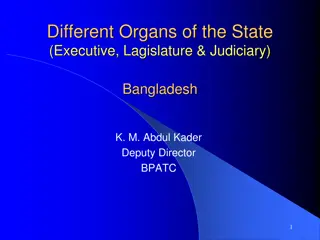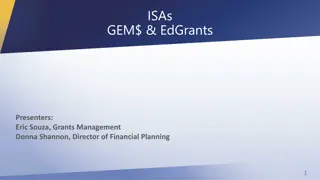Understanding Title IX and MS State Law
Explore the essential guide to Title IX, a federal civil rights law that prohibits sex-based discrimination on university campuses. Learn about offenses covered under Title IX, the role of the Title IX office, and unlawful discrimination and harassment policies. Understand sexual harassment, sexual assault, and the University's commitment to enforcing civil rights laws to protect all students.
Understanding Title IX and MS State Law
PowerPoint presentation about 'Understanding Title IX and MS State Law'. This presentation describes the topic on Explore the essential guide to Title IX, a federal civil rights law that prohibits sex-based discrimination on university campuses. Learn about offenses covered under Title IX, the role of the Title IX office, and unlawful discrimination and harassment policies. Understand sexual harassment, sexual assault, and the University's commitment to enforcing civil rights laws to protect all students.. Download this presentation absolutely free.
Presentation Transcript
AN ESSENTIAL GUIDE TO TITLE IX AND MS STATE LAW
OVERVIEW What is Title IX? What is covered under Title IX? MS State Law Hazing
WHAT IS TITLE IX? Title IX of the Education Amendments of 1972 is a federal civil rights law that prohibits discrimination on the basis of sex (and gender) on a University campus in its educational programs and activities when the University is federally funded. Title IX protects against sex discrimination and sexual harassment.
TITLE IX OFFICE Title IX Coordinator required by law Title IX office duty and obligation Title IX Coordinator oversees the process and address reported concerns Title IX office gather information and evidence conduct thorough and fair investigation
OFFENSES COVERED UNDER TITLE IX Under Title IX, discrimination on the basis of sex also includes sexual harassment, which includes: sexual assault, rape, acquaintance rape, stalking, relationship violence (domestic violence and dating violence), or any other discrimination or harassment based on sex. It is a violation of University policy as well as applicable law to commit or to attempt to commit these acts.
UNLAWFUL DISCRIMINATION AND HARASSMENT The University is dedicated to enforcing civil rights laws to protect all students from unlawful discrimination and harassment based on race, color, national origin, sex, disability, and age. This includes students who are lesbian, gay, bisexual, transgender, queer, questioning, asexual, intersex, nonbinary, and individuals who identify their sexual orientation or gender identity in other ways (LGBTQI+).
SEXUAL HARASSMENT Sexual Harassment is any unwelcome conduct that a reasonable person would find so severe, pervasive and objectively offensive that it denies a person equal education access. Conduct is considered unwelcome if the person did not request or invite it and considered the conduct to be undesirable or offensive.
SEXUAL ASSAULT The term sexual assault means any nonconsensual sexual act including when the victim lacks capacity to consent.
DATING AND DOMESTIC VIOLENCE Dating/Domestic violence is a pattern of abusive behavior used to exert power and control over a partner. Dating/Domestic violence can be physical, sexual, emotional, or psychological actions or threats of actions that influence another person.
STALKING Stalking is a course of conduct directed at a specific person that would cause a reasonable person to fear for his/her safety or the safety of others, or to suffer emotional distress. Stalking may include repeatedly following, harassing, threatening, or intimidating another.
RAPE Rape is any penetration, no matter how slight, of (1) the vagina or anus of a person by any body part of another person or by an object, or (2) the mouth of a person by a sex organ of another person, without that person s consent.
WHAT IS CONSENT? Consent is an understandable exchange of affirmative actions or words which indicate an active, knowing and voluntary agreement to engage in mutually agreed upon sexual activity. Consent is not freely given when it is in response to force or threat of force or when a person is incapacitated by the (voluntary or involuntary) use of drugs or alcohol or when the person is otherwise physically helpless and the person performing the act knows or should reasonably know that the other person is incapacitated or otherwise physically helpless. An action is done without that person s consent when it is inflicted upon a person who has not freely and actively given consent.
ON-CAMPUS VS. OFF-CAMPUS Title IX applies to reports of sexual harassment in education programs and activities which include the following: Buildings or other locations that are part of the school s operations, including remote learning platforms; Off-campus settings if the school exercised substantial control over the respondent and the context in which the alleged sexual harassment occurred; and Off-campus buildings owned or controlled by a student organization officially recognized by the University, such as a building owned by a recognized fraternity or sorority.
ESSENTIAL REPORTING REQUIREMENTS Once a faculty or staff member becomes aware of a situation involving sexual harassment or sexual misconduct, through actual or constructive notice, the information must be communicated to the Title IX office. Even if the individual does not plan to file a complaint with Title IX or does not want to speak with Title IX, Title IX still needs to be informed of the situation.
WHO NEEDS TO REPORT? ANYONE who experiences, observes, or hears about an incident of sexual harassment or sex discrimination should report it to the Title IX Coordinator as soon as possible.
CONFIDENTIALITY Who can hold confidentiality? Professional Mental Health Providers * Latasha Norman Center * Applied Psychological Services Clergy - Campus Ministries Medical Professionals JSU Health Services Center
CONFIDENTIALITY EVERYONE ELSE IS REQUIRED TO REPORT!!!
WHO DO I TELL? CAN I JUST TELL THE POLICE? Law enforcement involvement does not relieve the institution from investigating under Title IX. You may have a Title IX violation without a criminal violation (standard of proof is different). Complainant may not want to notify the police.
WHAT MUST BE INCLUDED IN A TITLE IX COMPLAINT? A formal Title IX investigation cannot occur unless the complainant discloses his or her identity, the identity of the alleged perpetrator, and details about the alleged misconduct in a formal complaint.
TITLE IX AND GREEK LIFE Title IX is relevant to MIP and Greek Life because the University wants to ensure that all students are provided fair and equitable treatment free from any form of discrimination.
HAZING The University has a ZERO TOLERANCE HAZING POLICY!
HAZING Some examples of hazing as expressed in the policy include: Paddling; Psychological shocks and creating excessive fatigue; Quests, treasure hunts, scavenger hunts, road trips; Wearing apparel in public which is not in normal good taste; Engaging in public stunts and buffoonery; Morally degrading or humiliating games and activities.
PLEDGING During the pledging period, candidates often spend a lot of time studying history and facets of sorority and fraternity life and the Greek system and bonding with new line sisters and brothers. Remember, not only is hazing against University policy but it is also a crime in the state of Mississippi.
MS CODE SECTION 97-3-105 A person found guilty of first degree hazing could face a fine of up to $2,000 and/or 6 months in jail. A person found guilty of second degree hazing could face a fine of up to $1,000.
HAZING Although there are policies and anti-hazing laws in place to deter individuals from participating in such conduct, hazing continues to occur among athletes, peer groups, gangs, and other school clubs and organizations. So, what is the harm in hazing?
HAZING Hazing creates stress, anxiety, intimidation, and often results in physical and emotional harm to the individual being hazed. Hazing may involve sexual misconduct.
TITLE IX AND HAZING: POINTS TO REMEMBER The University is committed to ensuring a community that is safe for all who study, live, work, and visit here. Please report incidents of sex discrimination, sexual harassment, sexual violence or hazing. Though it may be difficult, immediate reporting allows for the best possible efforts to support the complainant, investigate the claims, and to prevent a recurrence.
DIVISION OF GENERAL COUNSEL TITLE IX 8THFLOOR ADMINISTRATION TOWER General Counsel: Edward Watson, 601 General Counsel: Edward Watson, 601- -979 979- -3950 3950 Title IX Coordinator: LaShundra Jackson Title IX Coordinator: LaShundra Jackson- -Winters, 601 601- -979 979- -6804 6804 Winters, Title IX Investigator: Bryant Guy, 601 Title IX Investigator: Bryant Guy, 601- -979 979- -1315 1315 Title IX Cell Phone: 601 Title IX Cell Phone: 601- - 927 927- -4766 4766
DIVISION OF GENERAL COUNSEL TITLE IX Information regarding Title IX and the Title IX process can be found on the JSU website @ https://www.jsums.edu/titleix/
DIVISION OF GENERAL COUNSEL ADDITIONAL RESOURCES Jackson State University Department of Public Safety (601) 979-2580 Latasha Norman Counseling Center (601) 979-0374 Applied Psychological Services (601) 979-3381




